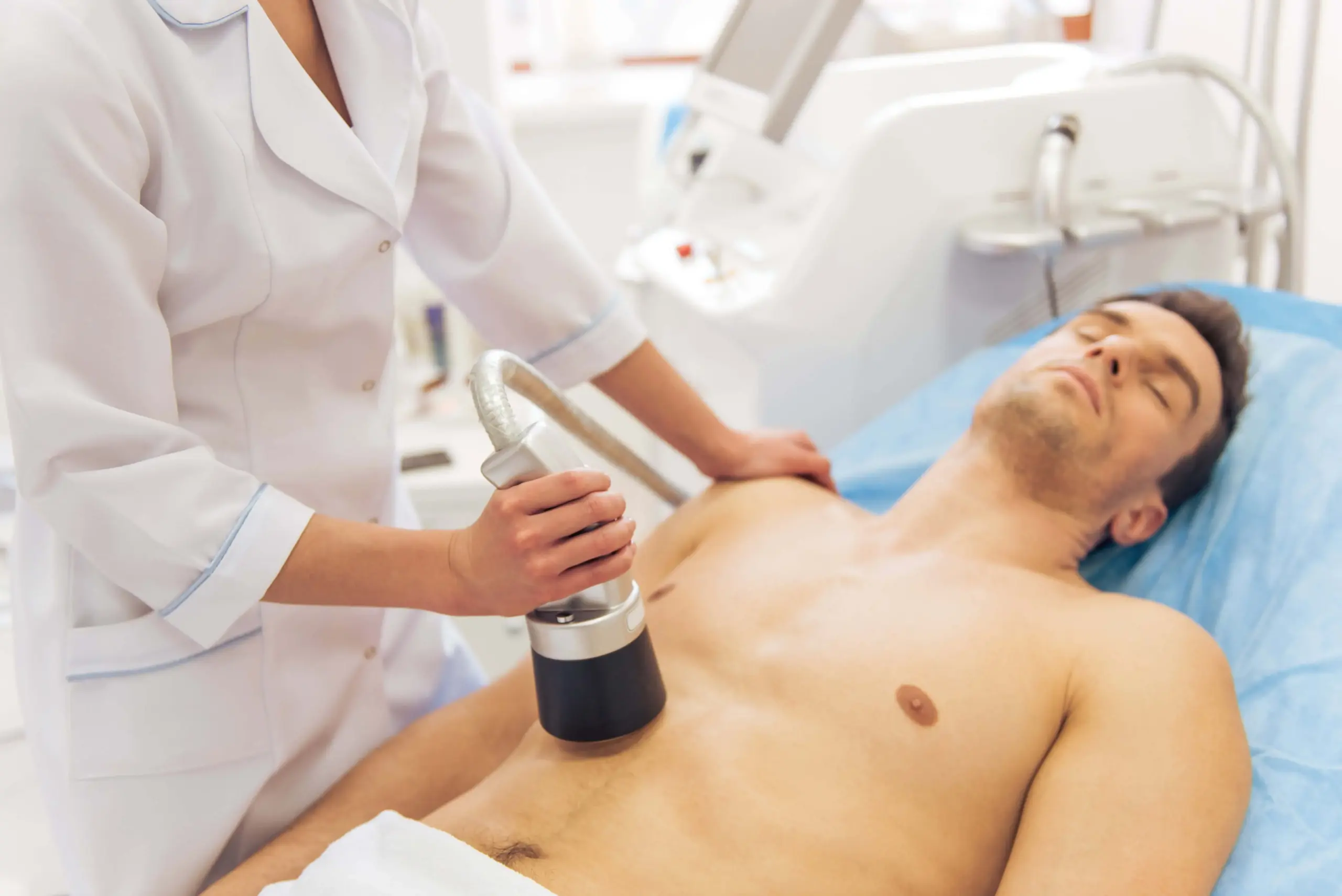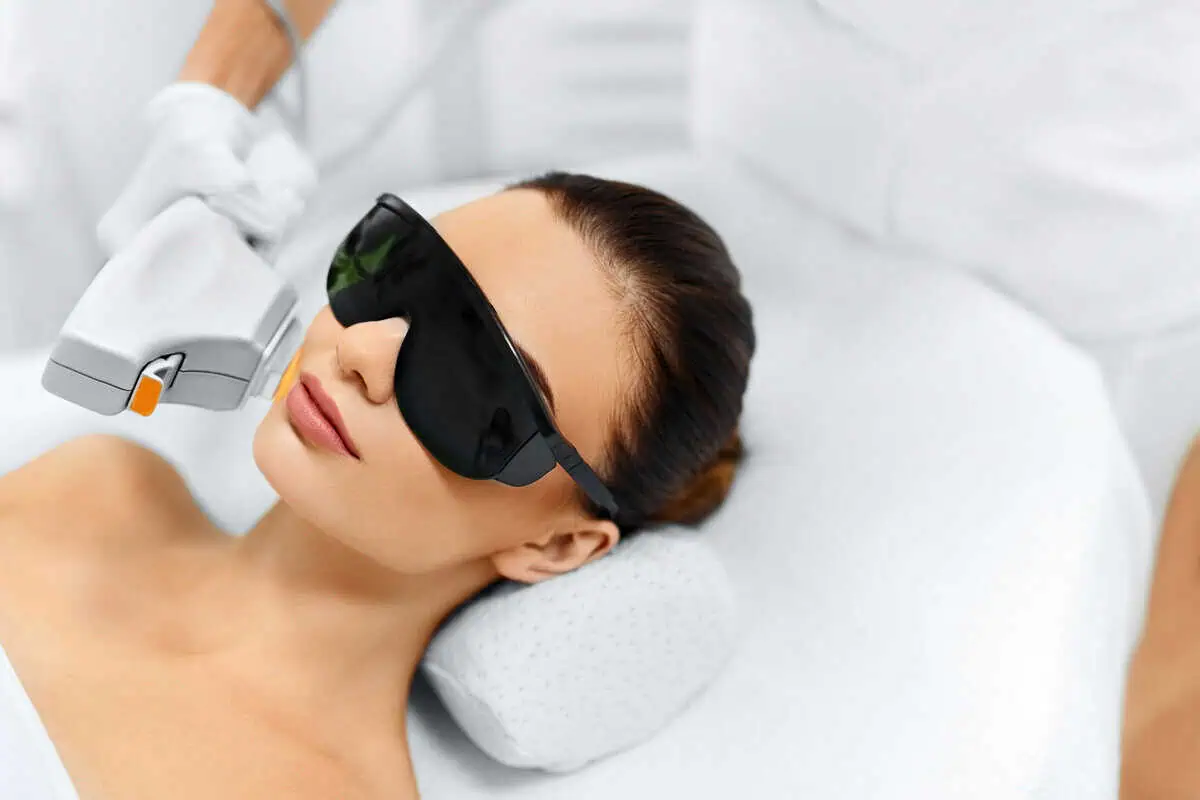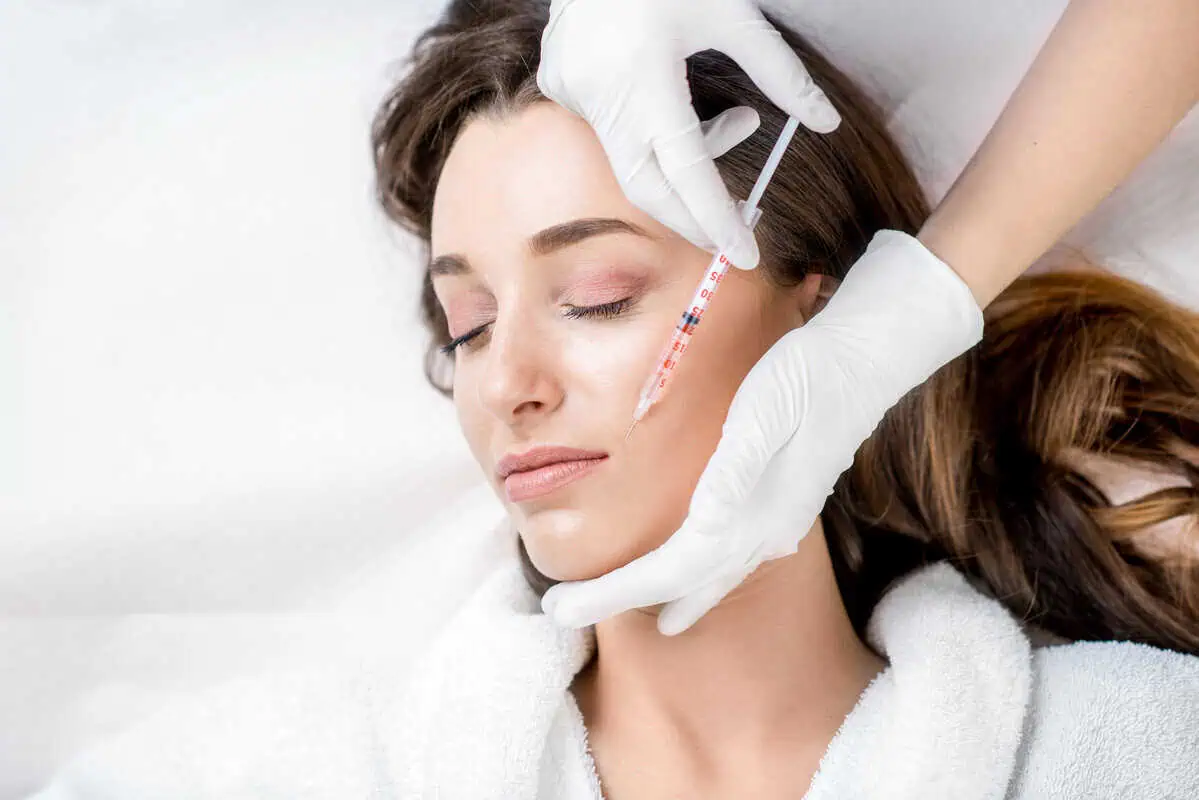Have you tried countless acne treatments without success? Most traditional treatments only work on the skin’s surface. But chemical peels for acne scars go deeper. They offer a more powerful solution for skin transformation.
This guide explores the science of chemical peels. You’ll learn how they work for different acne types. You’ll also discover if this treatment could be your path to clearer skin. Keep reading to determine if chemical peels are right for your acne issue.
Understanding Chemical Peels and Their Benefits
Chemical peels are specialized treatments that use carefully formulated solutions to promote deep exfoliation for acne and skin renewal.
The chemical peel treatments work by removing damaged outer layers of skin, stimulating collagen production, and revealing fresher, healthier skin underneath. Such a process of exfoliating chemical peels can significantly improve various skin concerns, from active breakouts to lingering scars.
How Chemical Peels Target Acne and Scarring
When it comes to reducing acne breakouts, chemical peels work through multiple mechanisms:
- Deep Exfoliation: The peeling agents break down dead skin cells and excess oil that can clog pores and lead to breakouts.
- Bacteria Reduction: Many chemical peels have antimicrobial properties that help combat acne-causing bacteria.
- Inflammation Control: Certain peel formulations contain ingredients that help reduce skin inflammation and redness.
- Scar Improvement: Acne scars treatment through chemical peels can help minimize the appearance of both shallow and deep acne scars. This effect is achieved by promoting skin cell turnover and collagen production.
The Science Behind Chemical Peels
Chemical peels work through controlled exfoliation that triggers the skin’s natural healing response. This process creates several key biological effects that contribute to skin improvement:
Stimulation of Collagen Production
When the peel solution creates controlled micro-damage to the skin, it activates fibroblast cells to produce new collagen fibers. This increased collagen production helps fill in acne scars, improve skin firmness, and enhance overall skin structure.
Increased Cell Turnover
Chemical peels accelerate the natural process of skin cell regeneration. By removing damaged surface cells more quickly, the skin is forced to produce new, healthy cells at a faster rate. This rapid renewal helps clear congested pores and reduce the formation of new acne lesions.
Improved Skin Texture
The exfoliating action of chemical peels removes the buildup of dead skin cells, excess oil, and debris that can make skin feel rough and look dull. As new skin cells emerge, they create a smoother, more refined surface texture with a more even tone.
Reduced Inflammation
Many chemical peel solutions contain ingredients with anti-inflammatory properties that help calm irritated skin. By reducing inflammation, peels can help minimize the redness and swelling associated with active acne while preventing post-inflammatory hyperpigmentation.
Promotion of the Natural Healing Process
The controlled injury created by chemical peels triggers the skin’s natural wound-healing response. This healing cascade releases growth factors and healing mediators that help repair damaged skin tissue, improving skin health and appearance.
Types of Chemical Peels for Different Skin Concerns
Superficial Peels
These are perfect for mild skin concerns and regular maintenance. The gentle peels typically use alpha-hydroxy acids (AHAs) or beta-hydroxy acids (BHAs). They’re excellent for:
- Mild acne
- Surface-level scarring
- Uneven skin tone
- Regular skin maintenance
Medium-Depth Peels
The next class of peels penetrate deeper into the skin and are ideal for:
- Moderate to severe acne
- More pronounced scarring
- Significant texture issues
- Stubborn hyperpigmentation
Deep Peels
Deep peels are typically reserved for severe cases. These professional-strength peels can address:
- Deep acne scarring
- Severe texture concerns
- Significant skin damage
- Long-term skin issues
The Chemical Peel Process: What to Expect
Preparation Phase
Your journey begins with a comprehensive consultation where our specialists will assess your skin type and determine the most appropriate chemical peel formulation for your specific concerns.
During your initial visit, your provider will carefully review your complete medical history and current skincare routine. This step ensures that the treatment will be safe and effective for your skin.
Also, you will receive detailed pre-treatment instructions that outline important steps to prepare your skin in the days leading up to your peel.
During Treatment
The actual procedure involves the following steps:
- Your skin will be thoroughly cleansed to remove all traces of oil, makeup, and surface debris. This helps achieve optimal penetration of the peel solution.
- The chemical peel practitioner will methodically apply the chemical solution. This involves applying precise techniques to ensure even distribution across the treatment area.
- Throughout the procedure, your provider will carefully monitor your skin’s response to ensure the peel achieves the desired depth while maintaining your comfort and safety.
- The peel will be neutralized at the exact right moment to achieve optimal results while protecting your skin’s integrity.
- Protective serums and moisturizers will be applied to support your skin’s healing process. They also help enhance your comfort after the treatment.
Recovery and Aftercare
You will need to follow a simplified, gentle skincare routine using only the recommended products to support your skin’s healing process. This means that your skin will require diligent protection from sun exposure. The reason for this is that it will be particularly sensitive to UV damage during the healing period.
Maximizing Your Chemical Peel Results
Pre-Treatment Guidelines
To achieve optimal results:
- You must discontinue the use of all retinoids, exfoliating products, and harsh active ingredients at least 3-5 days before your scheduled treatment
- It is essential to avoid direct sun exposure and tanning activities for at least one week prior to your chemical peel appointment
- Maintaining proper hydration by drinking plenty of water will help prepare your skin for optimal treatment results
- Your provider will give you specific instructions based on your skin condition and selected peel type, which must be followed precisely.
Post-Treatment Care
After your peel:
- Your skincare routine should focus exclusively on gentle, non-irritating products that have been specifically approved by your treatment provider.
- Diligent application of a broad-spectrum sunscreen with SPF 30 or higher is crucial every morning, even on cloudy days or when staying indoors.
- Your skin will require consistent moisturization with approved products to support the healing process and minimize any discomfort.
- Resist any urge to pick or peel at flaking skin, as this can lead to complications and compromise your results.
- Following your provider’s aftercare instructions precisely will ensure optimal healing and maximize the benefits of your treatment.
Choosing the Right Chemical Peel
Factors to consider when selecting a chemical peel include:
- Your skin type and condition
- Previous treatments and results
- Current skincare routine
- Treatment goals
- Lifestyle factors
- Budget considerations
Safety and Considerations
While chemical peels are generally safe, it’s important to:
- Choose a qualified provider
- Disclose all medical conditions and medications
- Follow pre and post-treatment instructions
- Report any unusual reactions
- Maintain realistic expectations
Health and Wellness Spa’s Chemical Peel Services
Chemical Peels in Charlottesville reach new heights of effectiveness at Health and Wellness Spa. Our team offers a variety of medical-grade chemical peels for mild to moderate skin rejuvenation. Moreover, a specialist from our skincare team will evaluate the condition of your skin during your initial consultation and answer any questions that you may have.
Want Smoother, Clearer Skin? Get Started with a Chemical Peel Now!
Frequently Asked Questions
Can I get a chemical peel while using prescription acne medications?
If you’re using prescription acne medications, especially those containing retinoids, you’ll need to temporarily discontinue use before your chemical peel. Generally, you should stop using these medications 5-7 days before treatment.
During your consultation, be sure to inform your skincare specialist about all medications you’re currently using.
How do chemical peels compare to at-home exfoliating products?
While at-home exfoliating products can be beneficial for regular maintenance, they contain significantly lower concentrations of active ingredients compared to professional chemical peels. Professional treatments are precisely formulated and can be layered or customized to achieve specific results. These can be challenging to achieve with over-the-counter products.
Will a chemical peel make my skin more sensitive to my regular skincare products?
After a chemical peel, your skin may temporarily be more sensitive to certain ingredients. These may include particularly active ingredients like vitamin C, retinoids, or acids. Your specialist will provide a specific timeline for when you can safely reintroduce these products into your routine.
How do chemical peels affect the skin color?
Chemical peels can be safely performed on all skin types when done correctly. However, deeper skin tones may require more careful consideration. This applies to peel selection and timing to minimize the risk of post-inflammatory hyperpigmentation.
Can chemical peels help with hormonal acne?
While chemical peels can be an effective part of treating hormonal acne, they work best as part of a comprehensive treatment approach. They can help manage current breakouts and improve the appearance of past damage.
As such, chemical peels cannot address the underlying hormonal causes. For optimal results, chemical peels should be combined with appropriate skincare.





